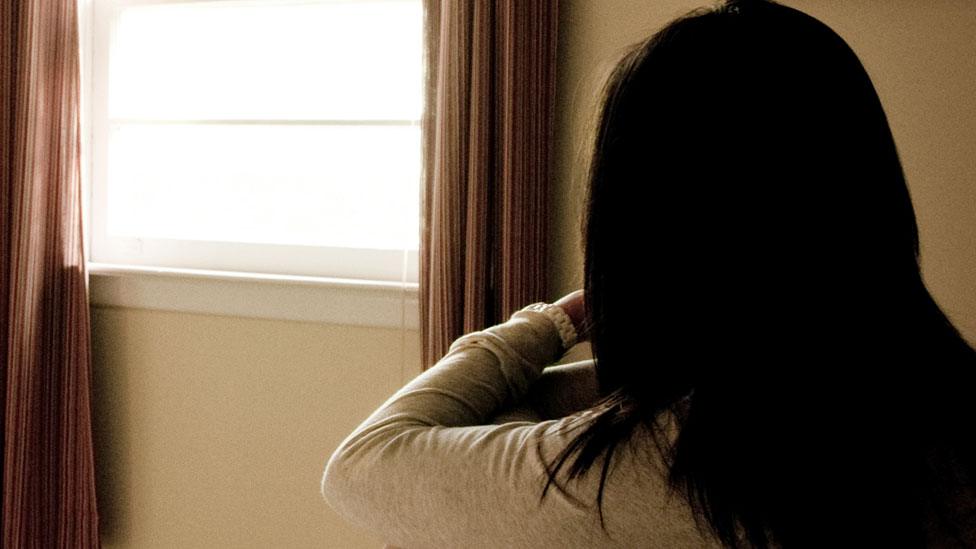Universal credit: Vote to extend benefit to three million delayed
- Published
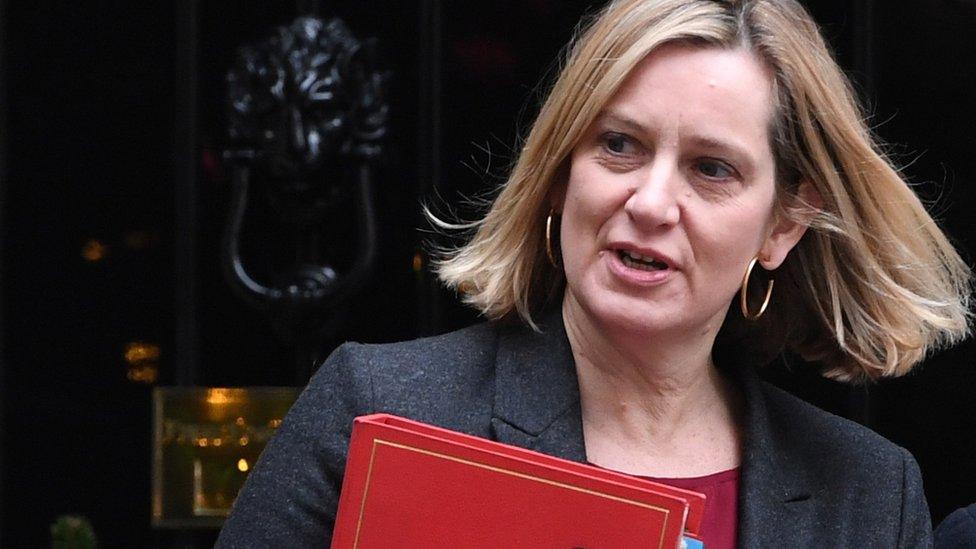
Work and Pensions Secretary Amber Rudd has said she would listen "very carefully" to concerns over universal credit
The next stage of the universal credit rollout is to be scaled back amid concerns about the controversial new benefits system.
MPs were due to vote on whether to move three million benefit claimants onto universal credit in the next few weeks.
But this vote has been pushed back and Parliament will instead be asked to vote on transferring just 10,000 people to the new benefits system.
Labour said ministers should halt the rollout "as a matter of urgency".
But the government says all claimants will be on universal credit by 2023 as planned.
Universal credit works by merging six different benefits, external for working age people into one monthly payment.
The single payment is paid directly into claimants' bank accounts, covering the benefits for which they are eligible.
Supporters of the welfare reform, which is being introduced in stages across the UK, say it helps simplify the old complicated benefits system.
The Department for Work and Pensions has said that, under universal credit people are moving into work faster and staying in work longer.
2.2 million families are expected to gain under the system, with an average increase in income of £41 a week according to analysis by the Resolution Foundation think tank.
However the same analysis found that 3.2 million households could lose an average of £48 per week.
Some people already claiming universal credit say it has forced them into destitution and in some cases prostitution. Others say they have been left to rely on foodbanks.
The rollout has also faced criticism for running over budget and is currently years behind schedule.
More than one million people are currently in receipt of universal credit - either new claimants for benefits or those who have had a change in circumstances, perhaps by moving house.
The government's plan is for almost seven million people to be on universal credit by 2023.
Ministers were due to seek Parliamentary approval to move three million existing welfare claimants onto the new benefit.
But now Work and Pensions Secretary Amber Rudd will seek approval for just 10,000 people to be moved onto universal credit in the summer.
That process will then be assessed and further Parliamentary approval sought before every other existing welfare claimant is moved.
A source close to Ms Rudd said the pause was the right thing to do, and should reassure Parliament that she was listening to MPs' concerns.
Universal credit: Is the government's benefit system working?
Prime Minister Theresa May told the BBC's Andrew Marr Show the new benefits system would be fully rolled out by 2023, as intended.
She said the government was taking its time "to get this right", insisting that universal credit is a better system than the one it replaces.
She added: "The legacy system we inherited from the Labour Party had nearly 1.4 million people left on benefits for almost a decade.
"Helping people into work, giving them the dignity of being in work, the ability to support their families, that's what universal credit is about."
The news that the government was pushing back the vote was first reported in the Observer on Sunday, external which quoted a Whitehall source as saying Ms Rudd wants a "fresh Parliamentary mandate" for the reform.
Ms Rudd, speaking when she was first given the job of work and pensions secretary in November last year, said she would listen "very carefully" to concerns over universal credit and admitted the system "can be better".
She added that she would "learn from errors" and "adjust" the system, which she said had problems, where needed.
Labour's shadow work and pensions secretary Margaret Greenwood described universal credit as "deeply flawed" and called on the government to halt the rollout "as a matter of urgency".
Former Labour MP Frank Field, work and pensions select committee chairman, told the Observer he welcomed Ms Rudd's decision to revisit the plans.
He said: "The government seems finally to have woken up to the human catastrophe that was waiting to happen under its ill-formed plans for moving people on to universal credit."
The government should proceed with "managed migration" of people to universal credit "only once it has proved to parliament that it will not push more vulnerable people to the brink of destitution", Mr Field added.
The government has agreed on several occasions to slow the pace at which universal credit is extended across the UK.
Ms Rudd's predecessor, Esther McVey, had promised claimants would be given more time to switch to the new benefit and they would not have to wait as long for their money.
And in the 2018 Autumn Budget last month, Chancellor Philip Hammond pledged an extra £1bn over five years to help those moving to the new payments and a £1,000 increase in the amount people can earn before losing benefits, at a cost of up to £1.7bn a year.

What is universal credit?
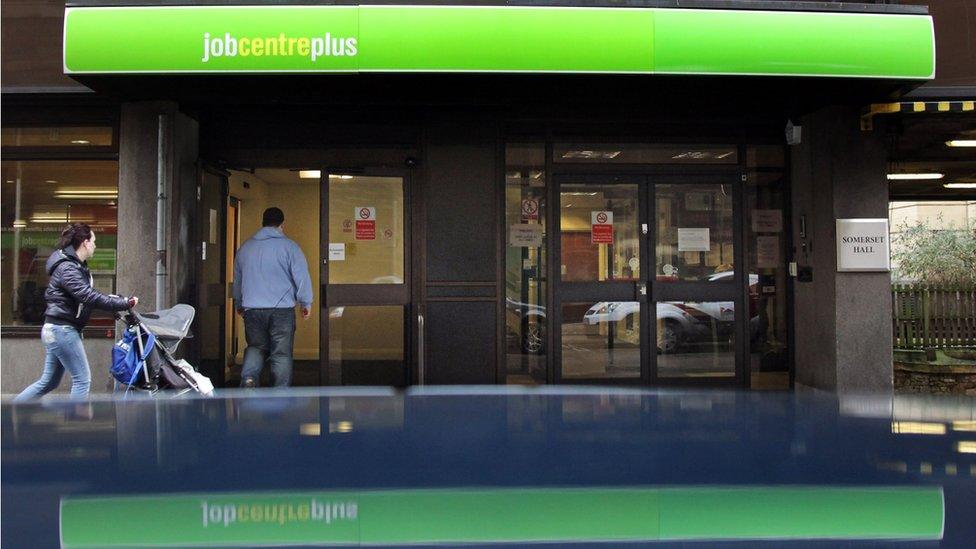
Universal credit is a benefit for working-age people.
It replaces six benefits - income support, income-based jobseeker's allowance, income-related employment and support allowance, housing benefit, child tax credit and working tax credit - and merges them into one payment:
It was designed to make claiming benefits simpler.
A single universal credit payment is paid directly into claimants' bank accounts to cover the benefits for which they are eligible.
Claimants then have to pay costs such as rent out of their universal credit payment (though there is a provision for people who are in rent arrears or have difficulty managing their money to have their rent paid directly to their landlord).
The latest available figures, external show that there were 1.4 million universal credit claimants in November.
- Published26 October 2018
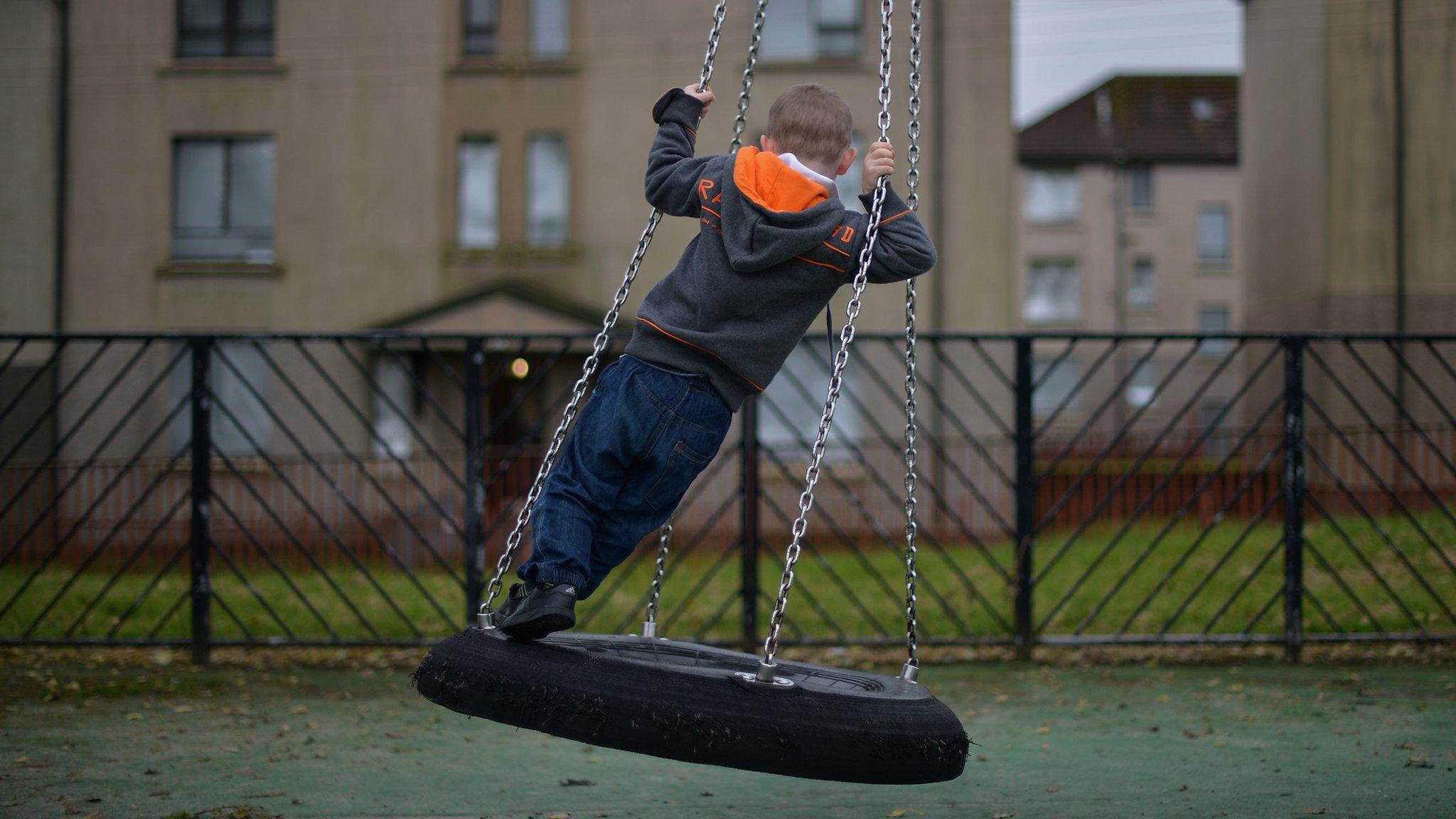
- Published13 May 2024

- Published15 December 2018
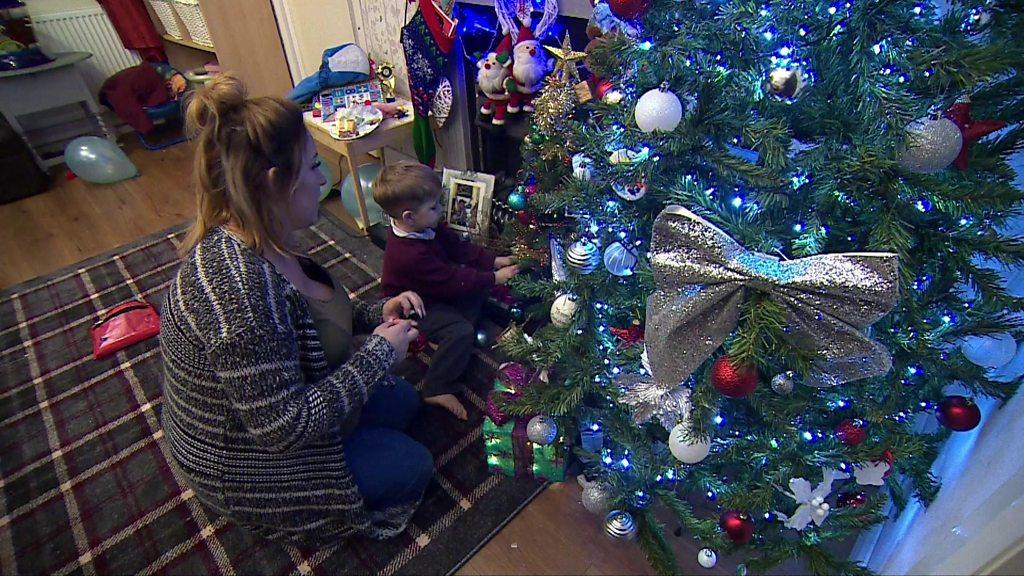
- Published16 December 2018

- Published14 December 2018
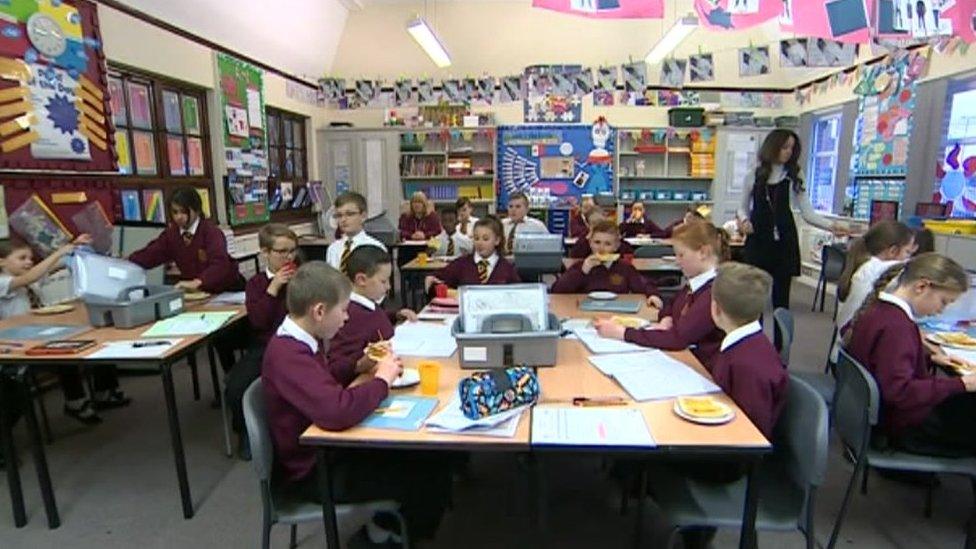
- Published6 December 2018

- Published6 December 2018

- Published19 November 2018
